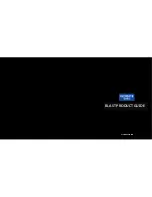
iv
Turn the transceiver power off in the following locations:
•
Near explosives or blasting sites.
•
In aircrafts. (Any use of the transceiver must follow the
instructions and regulations provided by the airline crew.)
•
Where restrictions or warnings are posted regarding the use of
radio devices, including but not limited to medical facilities.
•
Near persons wearing pacemakers.
Turn the transceiver power off in the following locations,
unless the model is specifi cally qualifi ed for such use
(Intrinsically Safe such as approved by Factory Mutual, CSA):
•
In explosive atmospheres (infl ammable gas, dust particles,
metallic powders, grain powders, etc.).
•
While taking on fuel or while parked at gasoline service stations.
•
Do not remove the black sheet from the reverse side of the
transceiver (refer to the illustration below). Removal of this
sheet decreases the waterproof effi ciency of the transceiver and
may cause malfunctions if water seeps into the transceiver.
•
The orange seal on the reverse side of the transceiver is
important with respect to the waterproof effi ciency of the
transceiver. Do not place stickers or other materials on or
around the seal shown in the fi gure, or on the reverse side of
the battery pack. Doing so will impair the waterproof effi ciency
of the transceiver and may cause it to break down. Additionally,
in order to prevent damage to the seal, do not allow it to come
in contact with foreign materials.









































